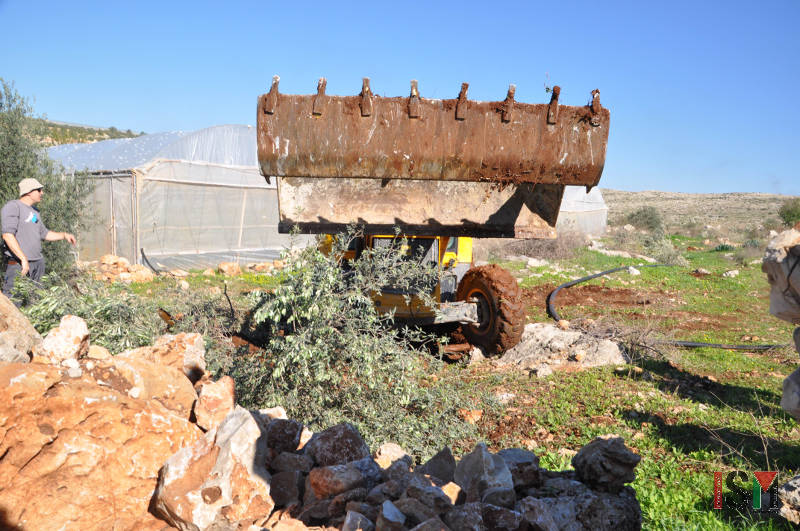Tag: Tree uprooting
-
Israeli forces uproot trees and destroy greenhouses in Kafa district
8th of December 2015 | International Solidarity Movement, Tulkarm Team | Kafa district, occupied Palestine On Tuesday, Israeli forces entered the village of Kafa in the outskirts of occupied Tulkarm. Within a few hours, they uprooted over 150 olive trees, 30 lemon trees and demolished four greenhouses from the land of the Esmail family. Even…
-
“My land is like my identity…I will always replant my trees” – farmer resists as 500 olive trees uprooted in Beit Dajan
24th April 2013 | International Solidarity Movement, Beit Dajan, Occupied Palestine By Team Nablus On the 22nd April 2013, 500 trees belonging to Beit Dajan villager Jamal Kanaan were uprooted by the Israeli military; making a total of six times since 2002 that his olive trees have been destroyed by the Israeli authorities. Around 50…
-
Jericho: Palestinian farmers ordered to leave land
By Liza Ennab 2 August 2012 | International Solidarity Movement, West Bank Reuters reports thats Israeli authorities have given Palestinian farmers living in Jericho in the West Bank an order to uproot palm trees they have grown and leave the agricultural lands within 45 days. The orders came in the form of letters sent to…

